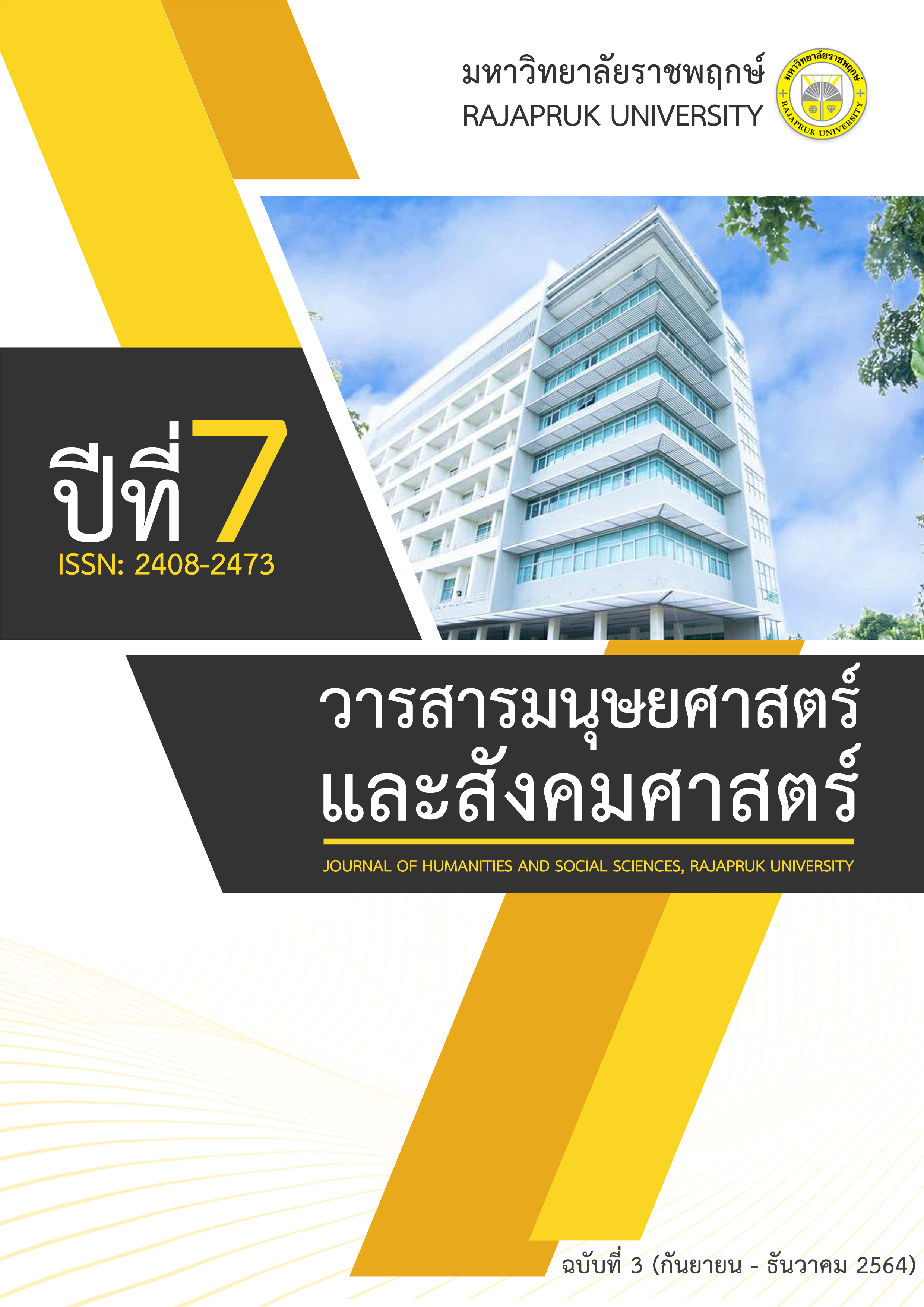The Development of Thai Labor in Industry Sector to Drive the Thailand 4.0
Main Article Content
Abstract
The objectives of this research were to 1) synthesize technician competencies in the electronics industry to drive Thailand 4.0, 2) assess the technician competencies in the electronics industry to drive Thailand 4.0, and 3) offer a model for developing the technician competencies in the electronics industry to drive Thailand 4.0. This study employed a mixed-methods design. Quantitative data were collected by questionnaires from 295 technicians of electronics factories in the Navanakorn Industrial Estate, Pathumthani Province. Qualitative data were collected by in-depth interviews with 14 individuals, comprising representatives of public-sector administrators and officers, executives in the electronics industry, and human resources managers, and a focused group discussion with ten human resources managers and supervisors. The data were analyzed by inductive analysis.
Results revealed that 1) the essential technician competencies included core competencies of attitudes and motive and functional competencies of knowledge, skills, and attributes, which were prioritized from high to low as 1. attitudes, 2. motive, 3. attributes, 4. knowledge, and 5. skills; 2) the current technician competencies were rated high, ranked from high to low as 1. attitudes, 2. attributes, 3. motive, 4. knowledge, and 5. skills, ranked top five by competency level as duty honesty, success-oriented work focuses, knowledge of responsible operations, critical thinking, and interpersonal skills, and ranked top five by competency gap as duty honesty, success-oriented work focuses, interpersonal skills, applications of field knowledge and skills, and cognitive flexibility and adaptability; and 3) Technician competency development model in the electronics industry to drive Thailand 4.0 consists of 5 components: 1. Technician's Competency 2. The competency gap to develop of technician, 3. Processes and guidelines for technician competency development 4. Methods for technician competency development, and 5. Development preconditions.
Article Details
References
กิริยา กุลกลการ. (2561). การบริหารทุนมนุษย์ในเศรษฐกิจยุค 4.0. สภาที่ปรึกษาเพื่อพัฒนาแรงงานไทย กระทรวงแรงงาน.
เกียรติอนันต์ ล้วนแก้ว. (2561). ช่องว่างทักษะกับนัยยะที่มีต่อการพัฒนากำลังคนของประเทศไทย. เอกสารการสัมนาทางวิชาการ ประจำปี 2561 ครั้งที่ 40. กรุงเทพฯ: คณะเศรษฐศาสตร์ มหาวิทยาลัยธรรมศาสตร์.
จินดารัตน์ โพธิ์นอก. (2557). ทักษะแห่งศตวรรษที่ 21. คลังความรู้. กรุงเทพฯ: สำนักงานราชบัณฑิตยสภา.
เจน นำชัยศิริ. (2561). ยกระดับเทคโนโลยีอุตสาหกรรมไทย สู่ยุค 4.0. กรุงเทพฯ: กรมส่งเสริมอุตสาหกรรม (กสอ.). กระทรวงอุตสาหกรรม.
ฉันทนา เจริญศักดิ์. (2557). รูปแบบการพัฒนาสมรรถนะของผู้พิพากษาในศาลแรงงาน. ปริญญาปรัชญาดุษฎีบัณฑิต สาขาวิชาการพัฒนาทรัพยากรมนุษย์ มหาวิทยาลัยรามคำแหง.
ชมรมบริหารงานบุคคลนวนคร. (2562). รายงานการสำรวจค่าจ้างและสวัสดิการ เดือนกันยายน 2562. ปทุมธานี: ชมรมบริหารงานบุคคลนวนคร
ชรอยวรรณ ประเสริฐผล และคณะ. (2556). รูปแบบการพัฒนาสมรรถนะด้านการจัดการการเรียนรู้ของครูใหม่ในโรงเรียนเอกชนประเภทสามัญศึกษา. วารสารศึกษาศาสตร์ มหาวิทยาลัยนเรศวร 15 (ฉบับพิเศษ): 48-49.
ทิวากร พิศาลสฤษติกรรม. (2557). แบบจำลองการพัฒนาทรัพยากรมนุษย์ของส่วนราชการประจำจังหวัด: ศึกษาเฉพาะกรณีกลุ่มจังหวัดภาคกลางตอนล่าง 1. ปริญญาดุษฎีบัณฑิต สาขาวิชา การพัฒนาทรัพยากรมนุษย์ มหาวิทยาลัยรามคำแหง.
บริษัท นวนคร จำกัด (มหาชน). (2562). ข้อมูลบริษัท. ค้นเมื่อวันที่ 17 สิงหาคม 2562, จาก https: //www.navanakorn.com/main.php?filename=inde
เปรมกมล ทินกร ณ อยุธยา. (2556). หลักสูตรการพัฒนาสมรรถนะของผู้อำนวยการฝ่าย บริษัท อสมท จำกัด (มหาชน). ปริญญาดุษฏีบัณฑิต สาขาวิชาการพัฒนาทรัพยากรมนุษย์ มหาวิทยาลัยรามคำแหง.
พงศธร ลิมปนเวทย์สกุล. (2559). การพัฒนาตัวบ่งชี้สมรรถนะหลักด้วยองค์ประกอบร่วมของ คุณลักษณะแรงงานในห่วงโซ่อุปทานธุรกิจการจัดงานแสดงสินค้าและนิทรรศการ. ปริญญาปรัชญาดุษฎีบัณฑิต สาขาวิชาการจัดการ มหาวิทยาลัยศิลปากร.
มณภัสสรณ์ เสถียรบุตร. (2558). รูปแบบการพัฒนาสมรรถนะผู้บริหารสถานศึกษาสังกัดสำนักงานเขตพื้นที่การศึกษาประถมศึกษาจังหวัดยะลา เพื่อรองรับการเข้าสู่ประชาคมอาเซียน.ปรัชญาดุษฏีบัณฑิต สาขาวิชาวิชาบริหารกาศึกษา มหาวิทยาลัยศรีปทุม.
ยงยุทธ แฉล้มวงษ์. (2561). การผลิตและการพัฒนาทรัพยากรมนุษย์ในยุคไทยแลนด์ 4.0. บทความทรัพยากรมนุษย์. สถาบันวิจัยเพื่อการพัฒนาประเทศไทย (ทีดีอาร์ไอ).
วิชาญ ทรายอ่อน. (2559). ประเทศไทย 4.0. สำนักงานเลขานุการสภาผู้แทนราษฏร: รัฐสภา.
สำนักงานพัฒนาวิทยาศาสตร์และเทคโนโลยีแห่งชาติ (สวทช.). (2558). อุตสาหกรรม 4.0 (Industrial 4.0) แนวทางของอุตสาหกรรมแห่งอนาคต, R&D สู่สังคม. กรุงเทพฯ: กระทรวงอุดมศึกษา วิทยาศาสตร์ วิจัย และนวัตกรรม (อว.).
สำนักงานอุตสาหกรรมจังหวัดปทุมธานี. (2561).รายงานการวิเคราะห์สภาวะเศรษฐกิจอุตสาหกรรมปี 2560. ปมุมธานี: สำนักงานอุตสาหกรรมจังหวัดปทุมธานี กระทรวงอุตสาหกรรม.
เสาวนีย์ จันทะพงษ์ และ ธันว์ธิดา วงศ์ประสงค์. (2561). ศักยภาพการแข่งขันด้านทรัพยากรมนุษย์: ไทยอยู่ไหนและจะสร้างทักษะในศตวรรษที่ 21 อย่างไร. บทวิเคราะห์ทางเศรษฐกิจของสายนโยบายการเงิน. กรุงเทพฯ: ธนาคารแห่งประเทศไทย.
อัจฉรา หล่อตระกูล. (2560). การพัฒนาสมรรถนะพนักงานมหาวิทยาลัยของรัฐ. วารสาร มจร สังคมศาสตร์ปริทัศน์ มหาวิทยาลัยมหาจุฬาลงกรณ์วิทยาลัย, 6(1): 193.
อเด็ดโก้. (2561). 10 ทักษะที่คนทำงานต้องมีภายในปี 2022. ค้นเมื่อวันที่ 21 มิถุนายน 2562, จาก https: //adecco.co.th/en/knowledge-center/detail/10-skills-Thailand-2022.


